
Lucca: The Walled Charm of Tuscany
Lucca is a hidden gem in the heart of Tuscany, known for its Renaissance walls that encircle the historic city center. These walls are not just ancient relics but serve as a promenade for both locals and tourists. Walking or cycling along these walls offers stunning views of the city and its surroundings. Within the walls, the cobbled streets and charming piazzas are lined with quaint cafes, boutique shops, and historic buildings. One of the city's highlights is the Guinigi Tower, topped with a garden of oak trees, offering panoramic views. The city is also famous for its beautiful churches, including the San Michele in Foro and the Lucca Cathedral, each with its own unique architectural style. Lucca's vibrant cultural scene includes numerous festivals, such as the Summer Festival, which attracts international music artists. The city's rich history and well-preserved architecture make it a perfect destination for those looking to immerse themselves in Tuscan culture and heritage.
Local tips in Lucca
- Rent a bike to explore the city walls and the narrow streets inside the historic center.
- Visit the Guinigi Tower early in the morning to avoid crowds and enjoy the best views.
- Try the local dish, Tordelli Lucchesi, at a traditional trattoria.
- Plan your visit during the Lucca Summer Festival or the Comics and Games Convention for a unique experience.
- Take a detour to the nearby countryside for a wine-tasting tour.
Lucca: The Walled Charm of Tuscany
Lucca is a hidden gem in the heart of Tuscany, known for its Renaissance walls that encircle the historic city center. These walls are not just ancient relics but serve as a promenade for both locals and tourists. Walking or cycling along these walls offers stunning views of the city and its surroundings. Within the walls, the cobbled streets and charming piazzas are lined with quaint cafes, boutique shops, and historic buildings. One of the city's highlights is the Guinigi Tower, topped with a garden of oak trees, offering panoramic views. The city is also famous for its beautiful churches, including the San Michele in Foro and the Lucca Cathedral, each with its own unique architectural style. Lucca's vibrant cultural scene includes numerous festivals, such as the Summer Festival, which attracts international music artists. The city's rich history and well-preserved architecture make it a perfect destination for those looking to immerse themselves in Tuscan culture and heritage.
When is the best time to go to Lucca?
Iconic landmarks you can’t miss
Piazza dell'Anfiteatro
Discover the charm of Piazza dell'Anfiteatro, a historical landmark in Lucca, where ancient architecture meets vibrant local culture and cuisine.
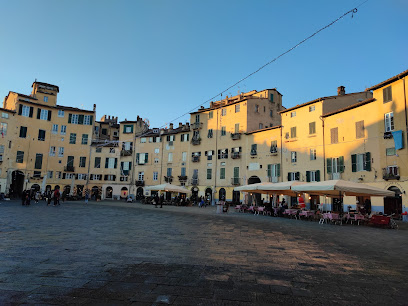
Piazza Napoleone
Explore the historic charm of Piazza Napoleone in Lucca, Italy, where culture, beauty, and local festivities converge in a picturesque setting.
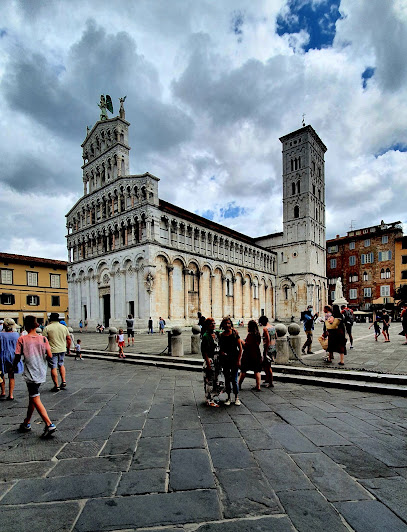
Cathedral of Lucca
Discover the architectural beauty and historical significance of the Cathedral of Lucca, a must-see landmark in Tuscany.
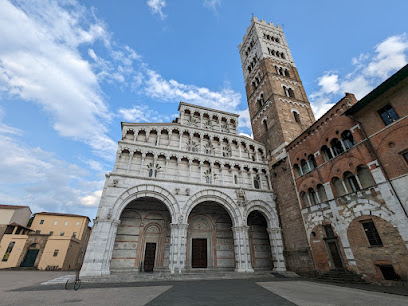
Guinigi Tower
Discover the stunning Guinigi Tower, a historical landmark in Lucca with breathtaking views, unique rooftop gardens, and rich architectural beauty.
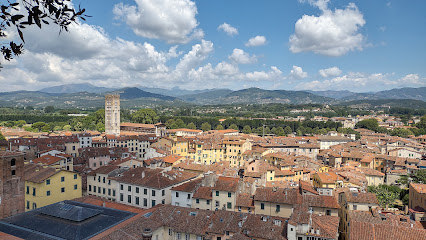
Mura di Lucca
Explore the enchanting Mura di Lucca, a historic fortress offering stunning views and a serene atmosphere in the heart of Tuscany.
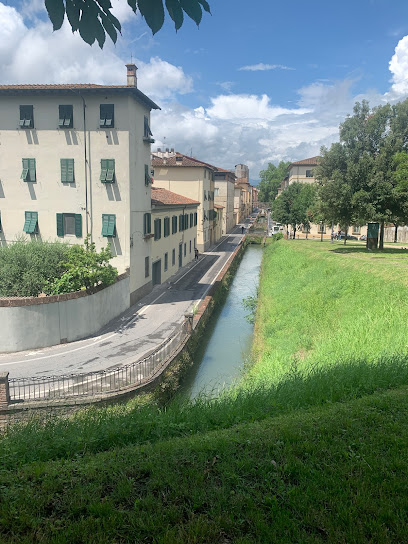
Porta San Pietro
Explore the architectural beauty and historical significance of Porta San Pietro, a stunning landmark in Lucca, Italy, that welcomes visitors with open arms.
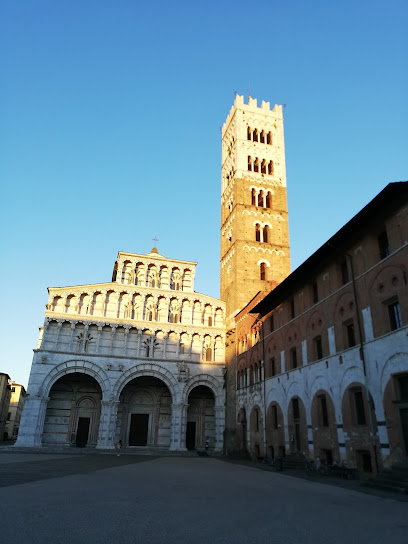
Porta Elisa
Experience the historic Porta Elisa, a stunning gateway to Lucca, blending ancient architecture with vibrant local culture.
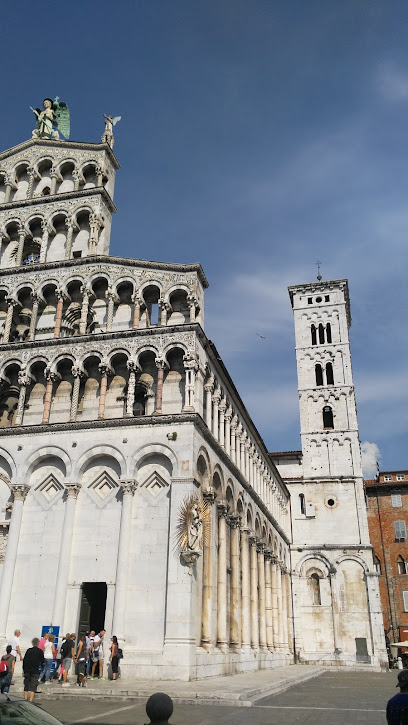
Chiesa di San Michele in Foro
Explore the architectural beauty and historical significance of Chiesa di San Michele in Foro in the heart of Lucca, Italy.

Porta Santa Maria
Discover Porta Santa Maria, a historical gateway in Lucca that offers a glimpse into the city's rich past and vibrant present.
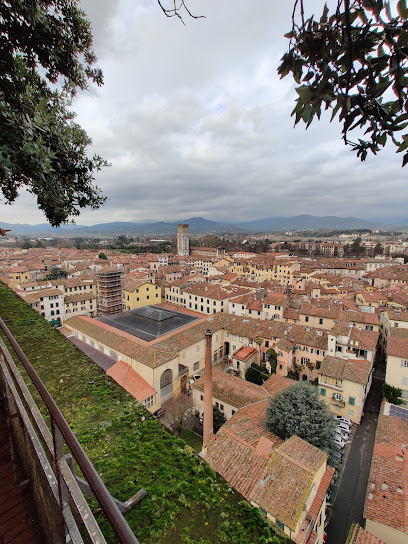
Villa Reale di Marlia
Explore the stunning Villa Reale di Marlia, a historical landmark in Tuscany, featuring exquisite gardens and rich heritage, perfect for an unforgettable visit.
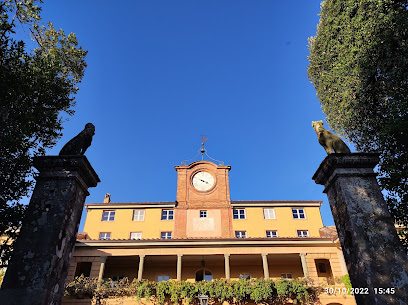
Palazzo Pfanner
Experience the baroque brilliance and serene gardens of Palazzo Pfanner in Lucca, a treasure trove of art and history waiting to be explored.
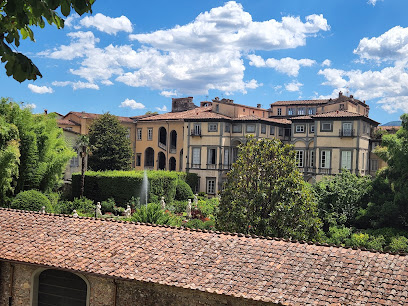
Clock Tower
Explore the historic Clock Tower in Lucca, a stunning landmark offering breathtaking views and a glimpse into the city's rich heritage.
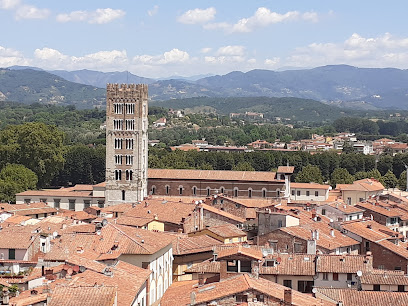
Il Quercione
Discover the serene beauty and rich culture of Il Quercione, a captivating tourist attraction in Tuscany's enchanting landscape.
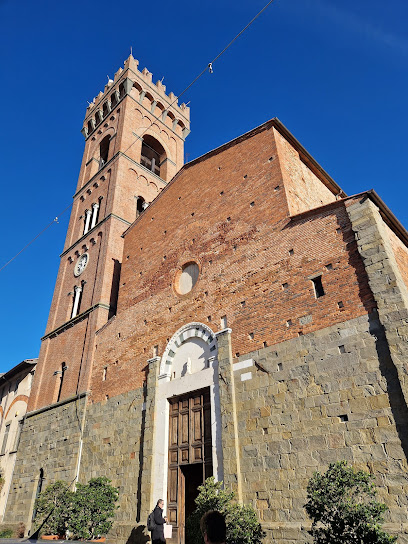
Orto Botanico Comunale di Lucca
Discover the lush tranquility of Orto Botanico Comunale di Lucca, where diverse plant life and serene pathways create an idyllic escape in the heart of Tuscany.
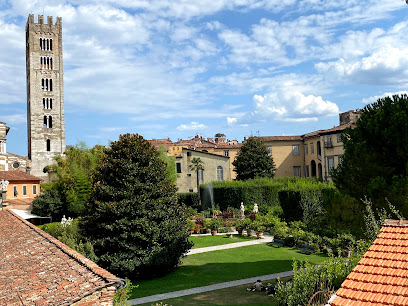
Real Collegio di Lucca
Explore the Real Collegio di Lucca, where historical grandeur meets vibrant exhibitions in the heart of Tuscany's charming city.
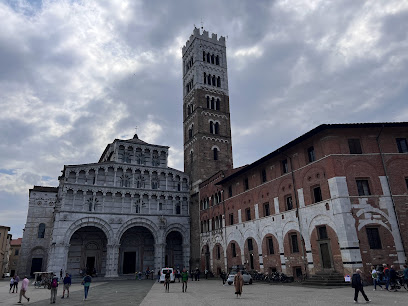
Unmissable attractions to see
Tower of Pisa
Visit the iconic Leaning Tower of Pisa, a symbol of architectural uniqueness in the heart of Tuscany's Square of Miracles. A must-see Italian landmark.
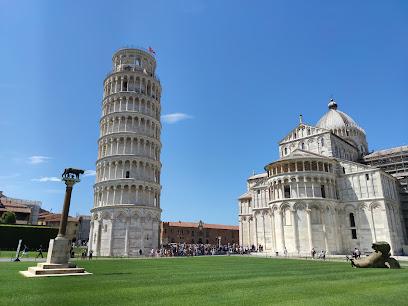
Piazza del Duomo
Discover Pisa's Piazza del Duomo: a UNESCO World Heritage site with the Leaning Tower, Duomo, Baptistery, and Camposanto.
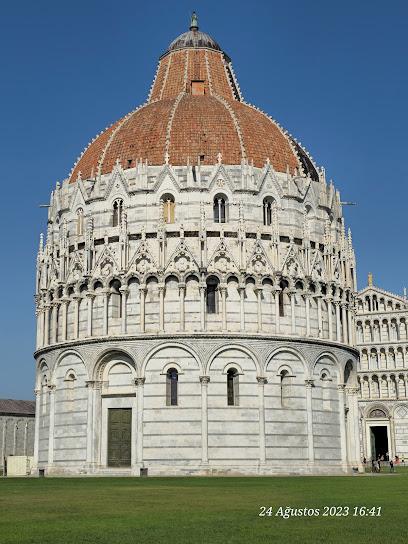
Terrazza Mascagni
Livorno's iconic seafront promenade featuring a dramatic black-and-white chessboard pavement and stunning Tyrrhenian Sea views.
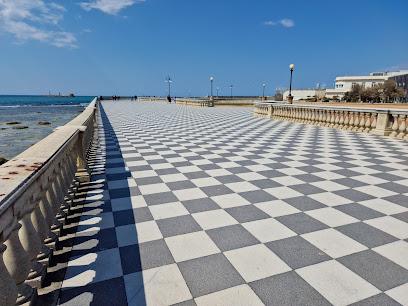
Piazza Napoleone
Lucca's main square, Piazza Napoleone, a historic and cultural gem showcasing neoclassical design and hosting vibrant events.
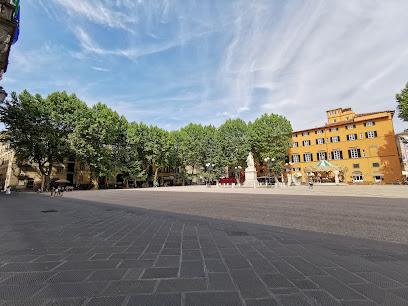
Cattedrale di Pisa
Explore the Cattedrale di Pisa, a stunning example of Pisan Romanesque architecture in the heart of the Piazza dei Miracoli.
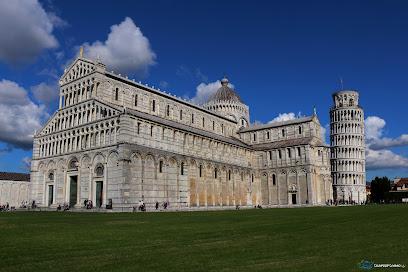
Devil's Bridge
Discover the legendary Devil's Bridge in Borgo a Mozzano: a medieval architectural wonder with a captivating history and stunning views.
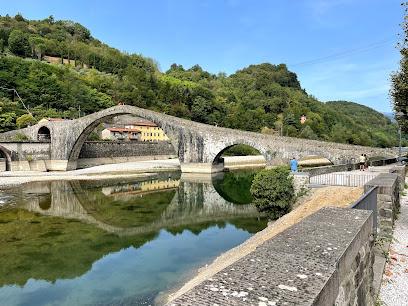
Duomo di San Martino
Explore Lucca's magnificent cathedral, a blend of Romanesque and Gothic art, home to the revered Volto Santo crucifix.
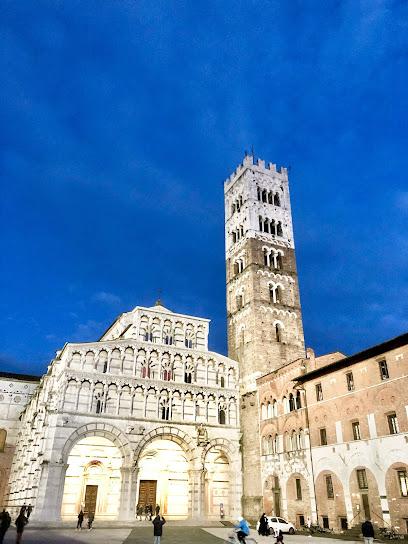
Piazza dei Cavalieri
Discover Pisa's political and military past in Piazza dei Cavalieri, a Renaissance square transformed by the Knights of St. Stephen.
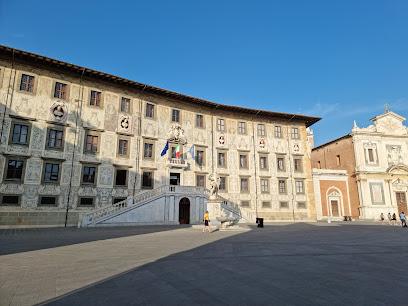
Museo Leonardiano di Vinci
Discover Leonardo da Vinci's genius in his birthplace: explore inventions, art, and interactive exhibits at the Museo Leonardiano di Vinci.
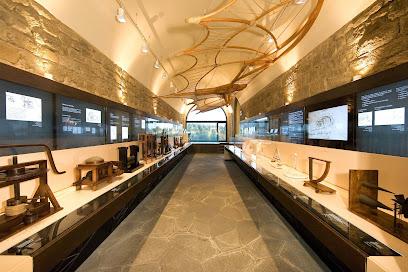
Mura di Lucca
Discover Lucca from its magnificent Renaissance walls: walk, cycle, and enjoy breathtaking views of the city and Tuscan countryside.
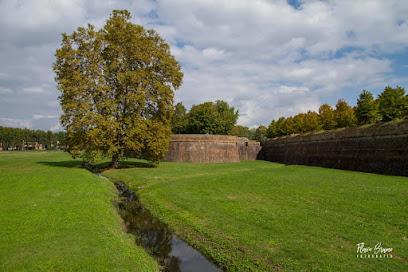
Natural History Museum of the University of Pisa
Explore natural history in a stunning monastery: cetaceans, dinosaurs, and Italy's largest freshwater aquarium await near Pisa.
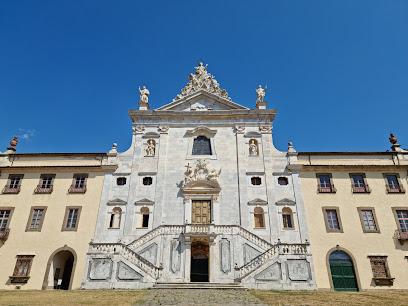
Pinocchio Park
Discover the magical world of Pinocchio in Collodi, Italy: A unique park blending art, nature, and the beloved fairy tale.
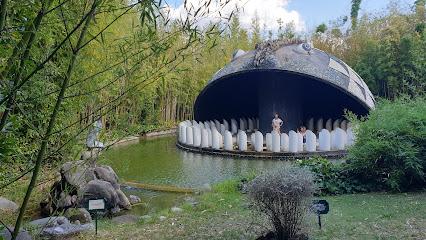
Acquario di Livorno
Discover marine life and terrestrial creatures at Tuscany's largest aquarium, located on Livorno's scenic waterfront.
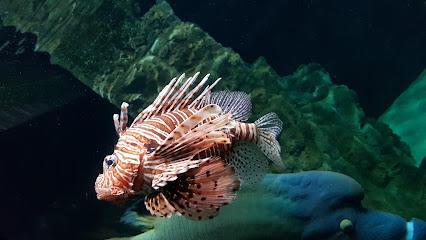
Palazzo Blu
Explore Pisan art and culture in a stunningly restored palace with a vibrant blue facade, hosting diverse exhibitions.
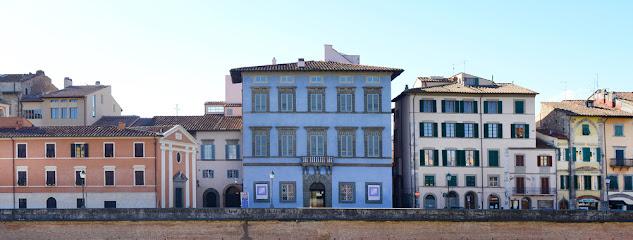
Parco Naturale Regionale delle Alpi Apuane
Discover the breathtaking beauty of the Apuan Alps: Hike scenic trails, explore stunning caves, and witness ancient marble quarries.
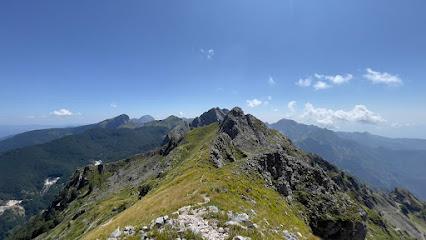
Essential places to dine
Trattoria da Giulio
Discover authentic Tuscan flavors at Trattoria da Giulio in Lucca – where every dish tells a story.
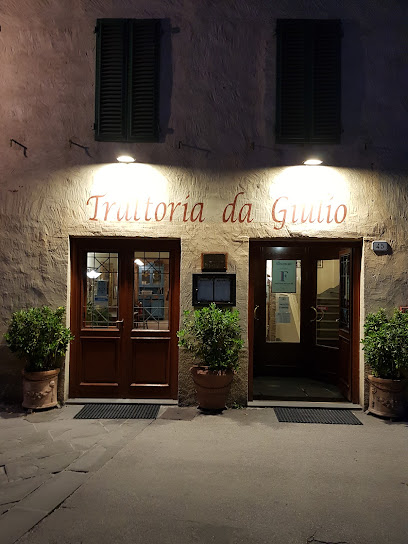
Trattoria Da Ubaldo
Discover Trattoria Da Ubaldo: Authentic Italian dining in the heart of Lucca with fresh ingredients and unforgettable flavors.
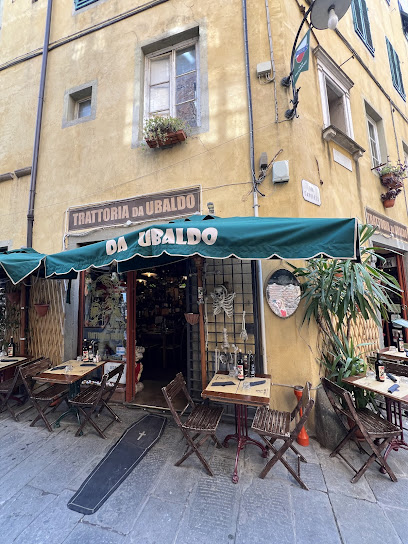
In Pasta - Cibo e Convivio
Experience authentic Italian cuisine at In Pasta in Lucca—where every dish tells a story.
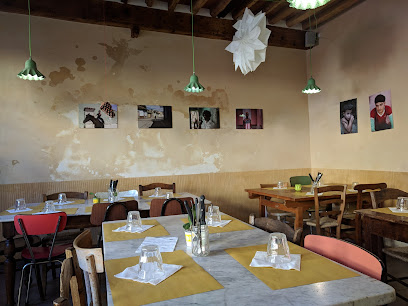
Trattoria da Leo
Experience authentic Italian flavors at Trattoria da Leo in Lucca - where every dish tells a story of tradition and passion.
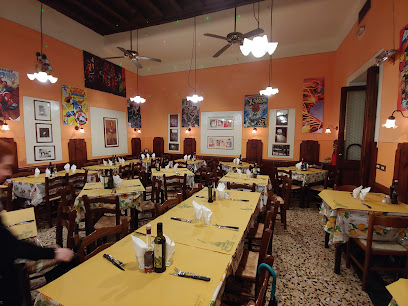
Buca di Sant'Antonio
Experience authentic Italian cuisine at Buca di Sant'Antonio in Lucca – where tradition meets exquisite taste.
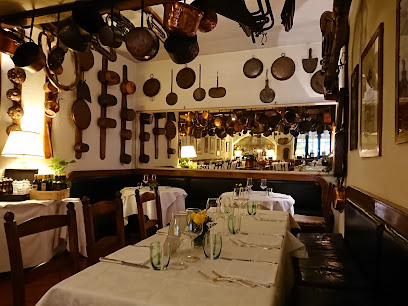
Osteria del Bastian Contrario
Discover authentic Tuscan flavors at Osteria del Bastian Contrario in Lucca – where tradition meets innovation in every dish.
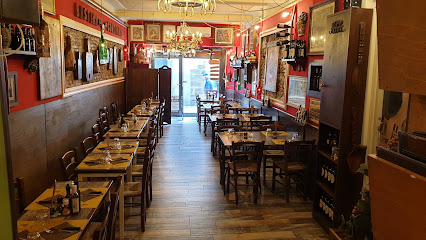
Gli Orti di Via Elisa
Experience authentic Italian flavors at Gli Orti di Via Elisa in Lucca - home to delicious pizzas and traditional dishes.
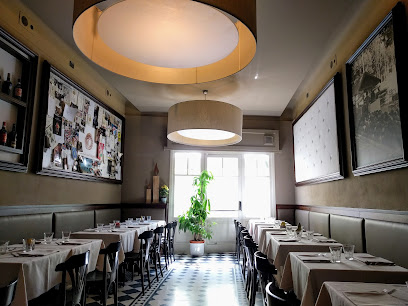
Da Rosolo
Experience authentic Italian flavors at Da Rosolo in Lucca—where every meal tells a story.
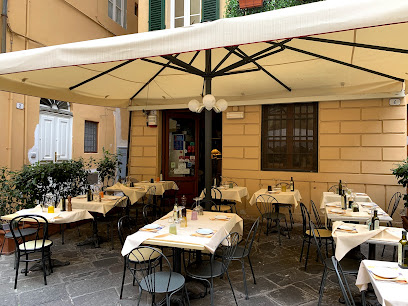
Osteria Baralla
Experience authentic Italian cuisine at Osteria Baralla in Lucca - where tradition meets taste in a historic setting.
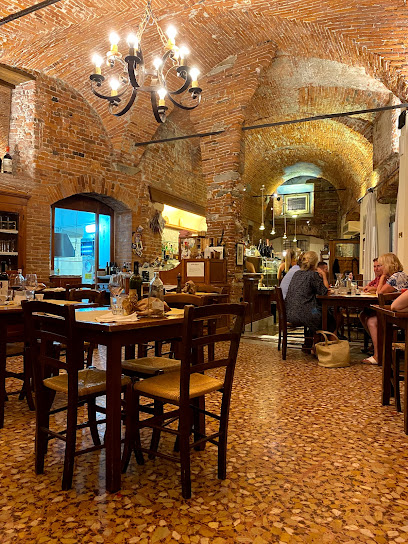
Ciacco
Discover Ciacco in Lucca - where traditional Italian cuisine meets innovative flavors in a cozy atmosphere.
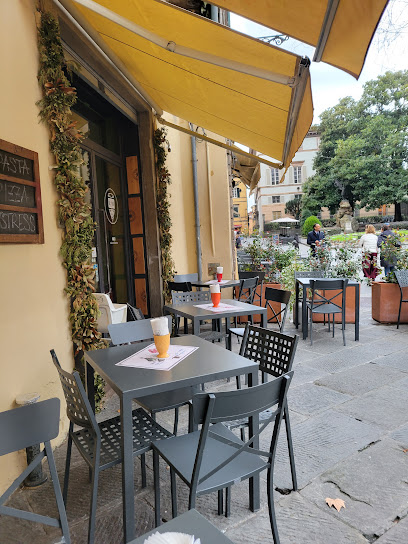
Gigi Trattoria
Experience authentic Italian dining at Gigi Trattoria in Lucca – where every dish tells a story.
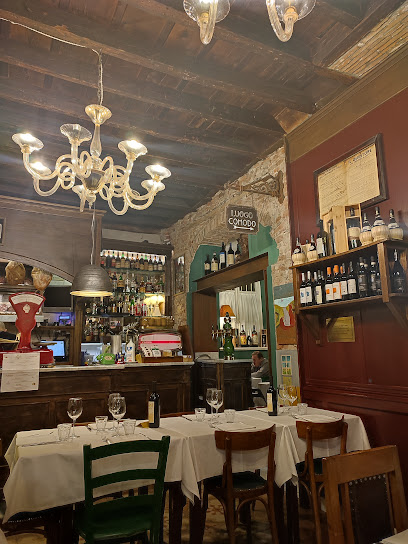
Ristorante Celide
Discover the essence of coastal cuisine at Ristorante Celide in Lucca – where fresh seafood meets authentic Italian hospitality.
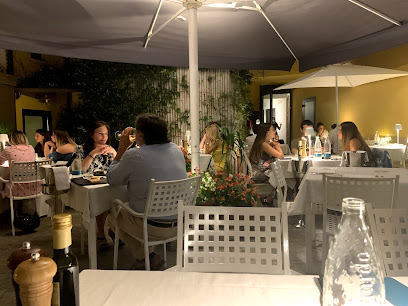
Trattoria Da Nonna Clara
Experience authentic Italian cuisine at Trattoria Da Nonna Clara in Lucca—where tradition meets flavor in every bite.
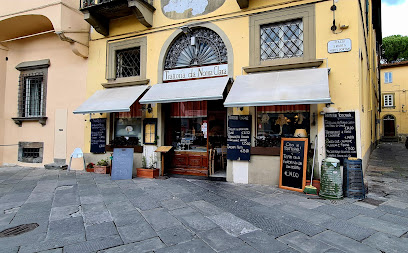
La Bottega di Anna e Leo
Experience authentic Italian cuisine at La Bottega di Anna e Leo in Lucca - where tradition meets flavor in every dish.
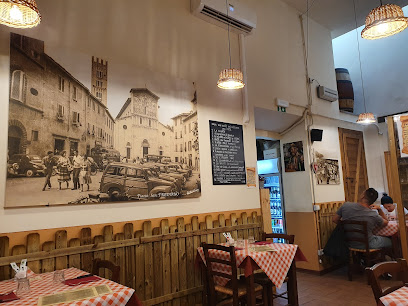
Ristorante Trattoria L' Angolo Tondo
Discover authentic Tuscan flavors at Ristorante Trattoria L' Angolo Tondo in Lucca - a must-visit culinary destination for every traveler.
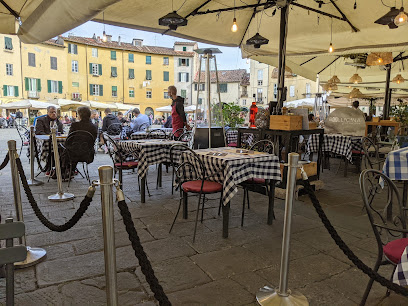
Markets, malls and hidden boutiques
Guidi Abbigliamento
Discover stylish apparel at Guidi Abbigliamento in Lucca — your destination for Italian fashion and unique accessories.

Fat Mama Vintage
Explore Fat Mama Vintage in Lucca, Italy – a treasure trove of unique vintage clothing and accessories waiting to be discovered.
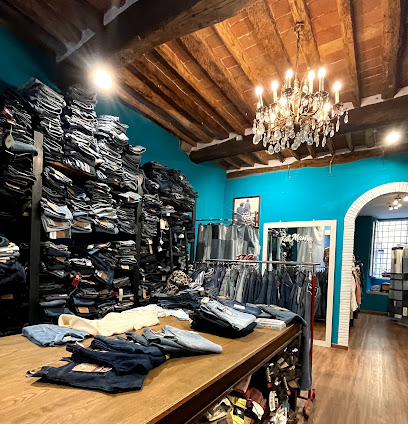
Pandora Concept Store
Explore the Pandora Concept Store in Lucca for exquisite jewelry and timeless designs that embody charm and individuality.
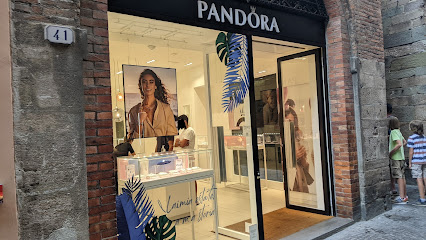
Officina della Pelle - Lucca
Explore the exquisite craftsmanship of Italian leather goods at Officina della Pelle, a must-visit shop in the heart of Lucca, Italy.
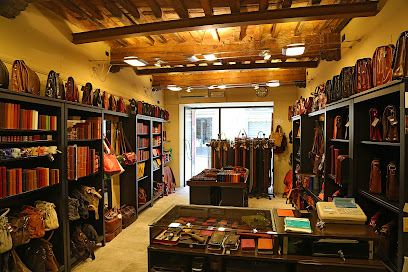
Subdued
Discover the latest trends in women's and youth fashion at Subdued, a trendy clothing store in the heart of Lucca, Italy.
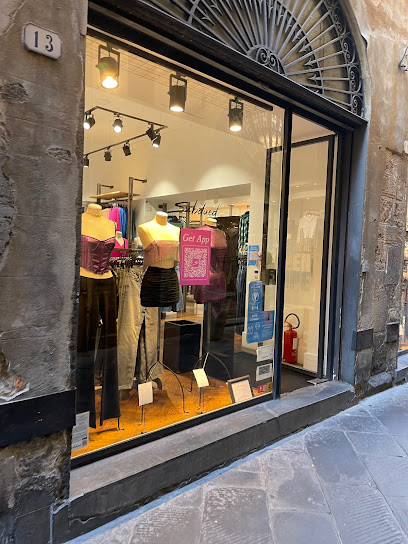
Etta's English Bookshop
Discover a literary paradise at Etta's English Bookshop in Lucca, where a rich selection of English literature awaits every book lover.
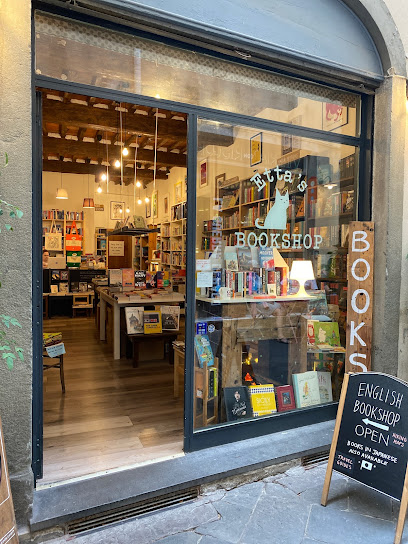
Vielle Abbigliamento Lucca
Discover unique women's fashion at Vielle Abbigliamento in Lucca, where style meets Italian craftsmanship in a charming boutique setting.
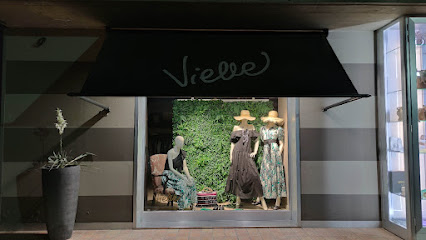
La Boutique dei Golosi S.n.c.
Explore local flavors and artisanal delights at La Boutique dei Golosi, Lucca's premier gift shop for gourmet treats and souvenirs.
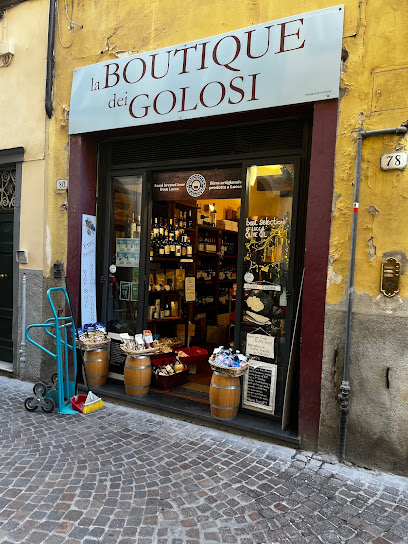
THUN Shop Lucca
Discover unique Italian gifts and home décor at THUN Shop Lucca - a must-visit for every tourist in this historic city.
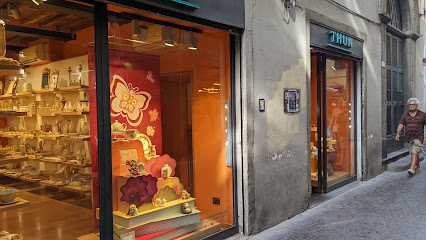
Antica Bottega di Prospero
Experience the rich flavors of Italy at Antica Bottega di Prospero – Lucca's premier destination for cheese, wine, and organic delicacies.
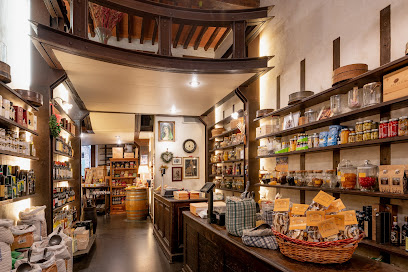
Tenucci Store - Negozio di Abbigliamento Lucca
Discover the charm of Italian fashion at Tenucci Store in Lucca, where quality meets style in a delightful shopping experience.
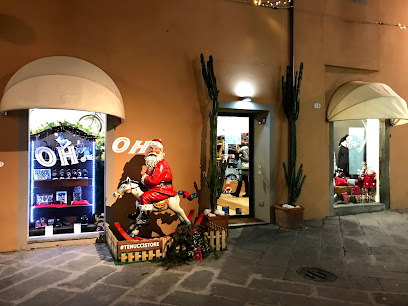
Gigolo&Void
Explore Gigolo&Void in Lucca for an unmatched selection of stylish men's clothing that celebrates local craftsmanship and contemporary design.
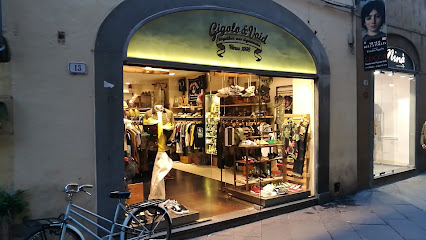
Bobbins
Explore Bobbins in Lucca for unique men's fashion that blends style and quality, perfect for any discerning traveler.
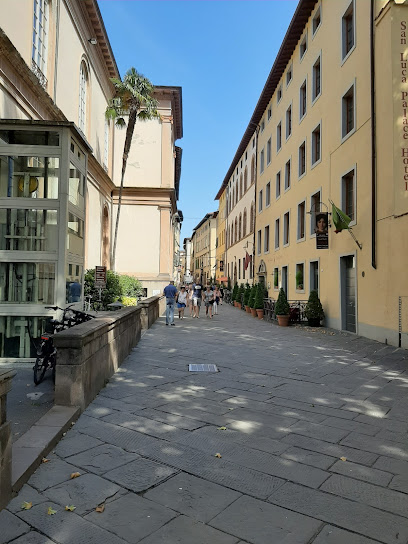
Alice Allo Specchio
Explore Alice Allo Specchio, a charming jewelry store in Lucca, showcasing exquisite Italian craftsmanship and unique pieces for every occasion.
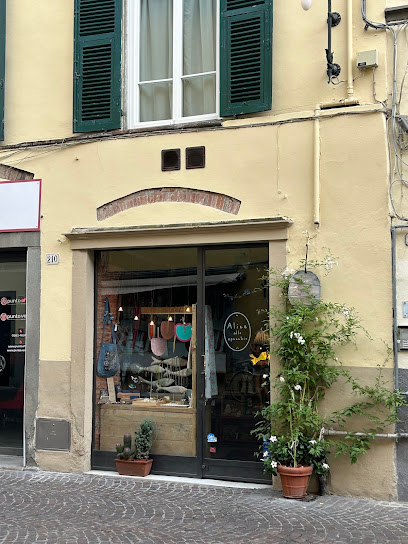
Dixie
Explore the chic styles of Dixie, a premier clothing store in Lucca, Italy, offering a delightful selection of women's clothing and dresses.
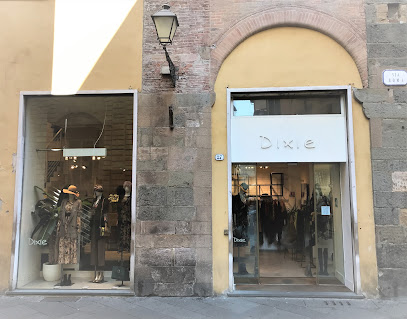
Essential bars & hidden hideouts
La Tana del Boia
Discover La Tana del Boia in Lucca: a cozy pub and wine store offering exquisite wines, cheeses, and cured meats for a delightful culinary experience.
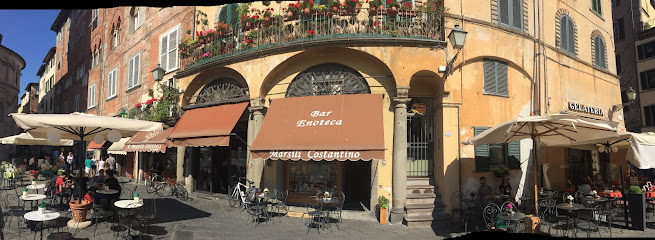
Ottavo Nano Pub
Experience the vibrant nightlife of Lucca at Ottavo Nano Pub, where delicious burgers and crafted cocktails await in a lively atmosphere.
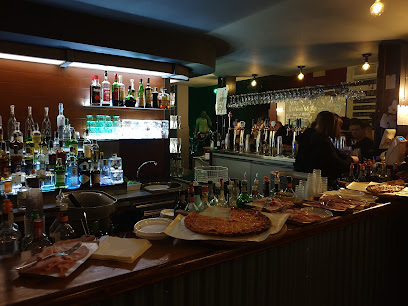
Franklin'33
Experience the vibrant atmosphere and delightful drinks at Franklin'33, a must-visit bar in the heart of Lucca, Italy.
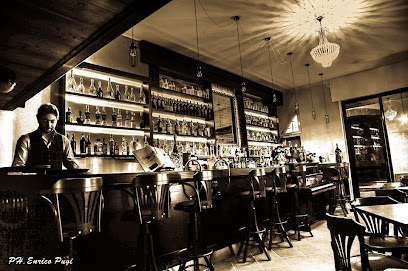
Nicola‘s Public House
Discover the inviting charm of Nicola's Public House in Lucca, where craft beers and local culture blend for an unforgettable experience.
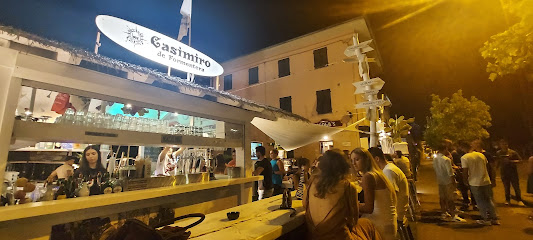
Vinarkia Della Pavona - Vineria | Cocktail Bar | Ristorante
Experience exquisite cocktails and authentic Italian cuisine at Vinarkia Della Pavona, a must-visit destination in Lucca's vibrant culinary scene.
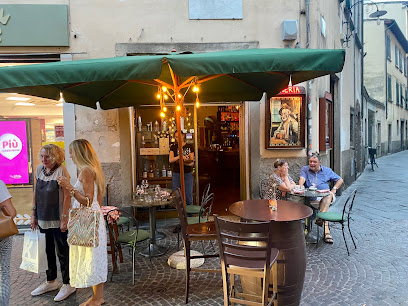
Mc Culloughs Irish Pub
Visit McCulloughs Irish Pub in Lucca for an unforgettable taste of Irish culture, delicious food, and lively entertainment in a cozy setting.
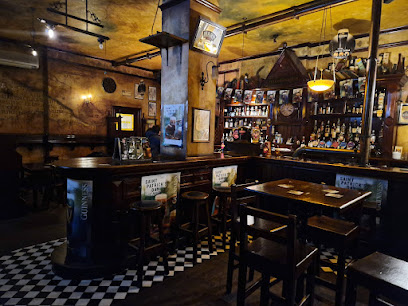
Bar Cupido Sas
Discover the lively atmosphere and delicious menu at Bar Cupido Sas in Lucca, where local flavors meet vibrant live music.
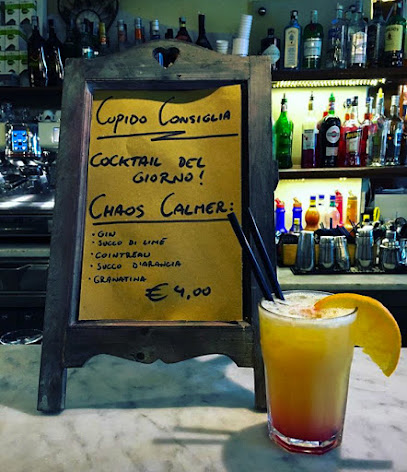
Enoteca Vanni
Discover the essence of Tuscan wines at Enoteca Vanni, where every glass promises a taste of Italy's rich heritage.
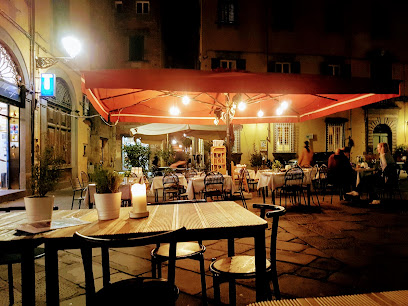
Bar Caffè Ristretto
Discover the vibrant atmosphere and exquisite drinks at Bar Caffè Ristretto, a premier cocktail bar in the heart of Lucca, Italy.
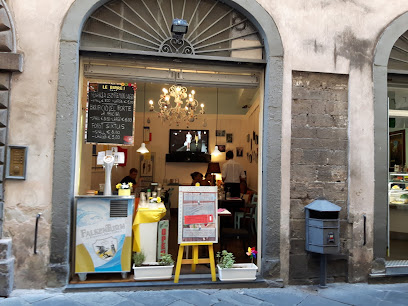
T Caffè
Experience the heart of Lucca at T Caffè, where delightful beverages and a cozy ambiance await every visitor.
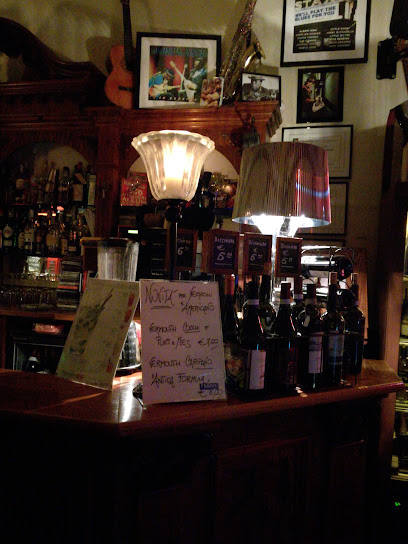
Magellano
Explore Magellano in Lucca for unique cocktails and a vibrant atmosphere, perfect for unwinding after a day of adventures.
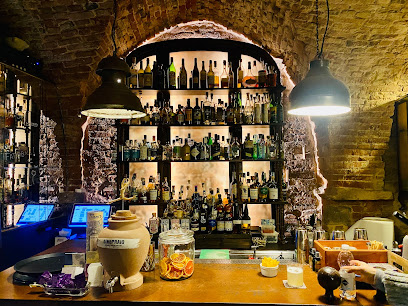
Lebowski - Cocktail Bar
Discover the lively spirit of Lucca at Lebowski - Cocktail Bar, where exquisite cocktails and a vibrant atmosphere await you.
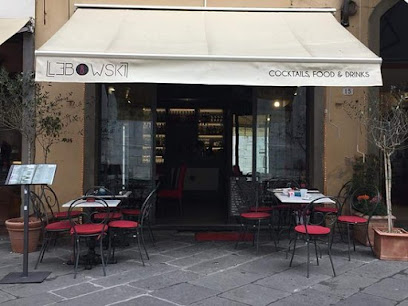
Bar Tessieri Di Tessieri Gabriella E Andrei Laura & C. Snc
Discover Bar Tessieri, the heart of Lucca's coffee culture, offering delicious pastries and a cozy atmosphere for all visitors.
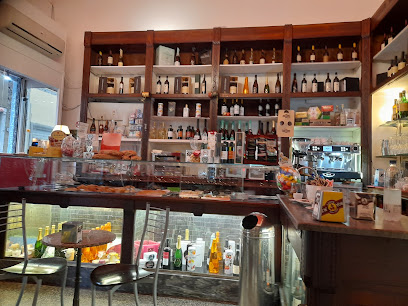
Rewine Bar
Discover the charm of Rewine Bar in Lucca, where innovative cocktails and a cozy atmosphere await every visitor.
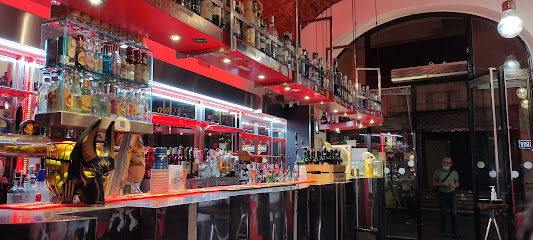
Ciclo Divino
Discover the charm of Ciclo Divino in Lucca: a bar, deli, and bicycle shop offering delicious tapas, fine wines, and a cozy atmosphere.
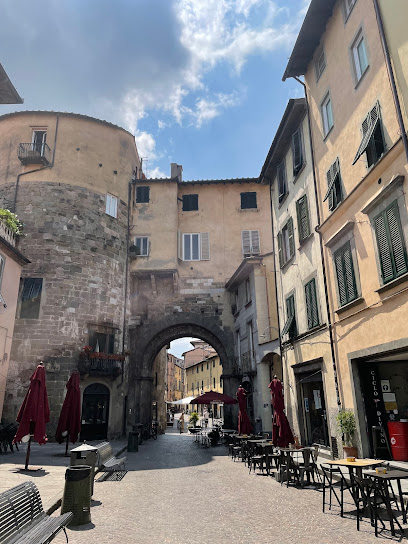
Travel experiences inspired by this city
Explore more travel diariesLocal Phrases
-
- HelloCiao
[chow] - GoodbyeArrivederci
[ah-ree-veh-dehr-chee] - YesSì
[see] - NoNo
[noh] - Please/You're welcomePer favore/Prego
[pehr fah-voh-reh/preh-goh] - Thank youGrazie
[grah-tsyeh] - Excuse me/SorryScusi/Mi dispiace
[skoo-zee/mee dees-pyah-cheh] - How are you?Come stai?
[koh-meh stah-ee] - Fine. And you?Bene. E tu?
[beh-neh. eh too] - Do you speak English?Parli inglese?
[pahr-lee een-gleh-zeh] - I don't understandNon capisco
[nohn kah-pee-skoh]
- HelloCiao
-
- I'd like to see the menu, pleaseVorrei vedere il menu, per favore
[vohr-ray veh-deh-reh eel meh-noo, pehr fah-voh-reh] - I don't eat meatNon mangio carne
[nohn mahn-joh kahr-neh] - Cheers!Salute!
[sah-loo-teh] - I would like to pay, pleaseVorrei pagare, per favore
[vohr-ray pah-gah-reh, pehr fah-voh-reh]
- I'd like to see the menu, pleaseVorrei vedere il menu, per favore
-
- Help!Aiuto!
[ah-yoo-toh] - Go away!Vattene!
[vaht-teh-neh] - Call the Police!Chiamate la Polizia!
[kyah-mah-teh lah poh-lee-tsya] - Call a doctor!Chiamate un dottore!
[kyah-mah-teh oon doh-toh-reh] - I'm lostMi sono perso
[mee soh-no pehr-soh] - I'm illSono malato
[soh-noh mah-lah-toh]
- Help!Aiuto!
-
- I'd like to buy...Vorrei comprare...
[vohr-ray kohm-prah-reh] - I'm just lookingSto solo guardando
[stoh soh-loh gwahr-dahn-doh] - How much is it?Quanto costa?
[kwahn-toh koh-stah] - That's too expensiveÈ troppo caro
[eh troh-poh kah-roh] - Can you lower the price?Puoi abbassare il prezzo?
[pwah-ee ahb-bah-sah-reh eel preh-tsoh]
- I'd like to buy...Vorrei comprare...
-
- What time is it?Che ora è?
[keh oh-rah eh] - It's one o'clockÈ l'una
[eh loo-nah] - Half past (10)Sono le dieci e mezza
[soh-noh leh dyeh-chee eh meh-tzah] - MorningMattina
[maht-tee-nah] - AfternoonPomeriggio
[poh-meh-ree-joh] - EveningSera
[seh-rah] - YesterdayIeri
[yeh-ree] - TodayOggi
[oh-jee] - TomorrowDomani
[doh-mah-nee] - 1Uno
[oo-noh] - 2Due
[doo-eh] - 3Tre
[treh] - 4Quattro
[kwah-troh] - 5Cinque
[cheen-kweh] - 6Sei
[say] - 7Sette
[seht-teh] - 8Otto
[oh-toh] - 9Nove
[noh-veh] - 10Dieci
[dyeh-chee]
- What time is it?Che ora è?
-
- Where's a/the...?Dov'è un/il...?
[doh-veh oon/eel] - What's the address?Qual è l'indirizzo?
[kwahl eh leen-dee-ree-tsoh] - Can you show me (on the map)?Puoi farmi vedere (sulla mappa)?
[pwah-ee fahr-mee veh-deh-reh (sool-lah mahp-pah)] - When's the next (bus)?Quando passa il prossimo (autobus)?
[kwahn-doh pahs-sah eel prohs-see-moh (ow-toh-boos)] - A ticket (to ....)Un biglietto (per ....)
[oon beel-lyet-toh (pehr)]
- Where's a/the...?Dov'è un/il...?
History of Lucca
-
Lucca was founded by the Etruscans and became a Roman colony in 180 BC. The grid layout of its historical center still reflects its Roman origins, with the Piazza dell'Anfiteatro standing on the site of the ancient Roman amphitheater. The remnants of the Roman walls and the forum provide a glimpse into the city's early days.
-
During the Middle Ages, Lucca became a prominent and wealthy city-state. It was renowned for its silk production, which began in the 11th century and brought immense prosperity. The city maintained its independence and was a republic for nearly 500 years, resisting external control from powerful neighbors such as Pisa and Florence.
-
One of Lucca's most iconic features is its well-preserved Renaissance-era city walls, built between the 16th and 17th centuries. These massive walls, which still encircle the old town, were constructed to defend against potential invasions but now serve as a popular pedestrian promenade offering panoramic views of the city and surrounding countryside.
-
In 1805, Lucca was taken over by Napoleon Bonaparte and became a principality under his sister, Elisa Bonaparte Baciocchi. This period saw significant urban development and modernization of the city’s infrastructure. Despite the political upheaval, Lucca retained much of its cultural heritage and architectural integrity.
-
In the mid-19th century, Lucca joined the Kingdom of Italy during the Risorgimento, the movement for Italian unification. The city adapted to the changing political landscape while preserving its historic charm. This era saw the revitalization of its cultural institutions and the continuation of its rich musical traditions.
-
Lucca is renowned for its cultural contributions, particularly in music. It is the birthplace of famous composers such as Giacomo Puccini, whose legacy is celebrated through festivals and concerts. Today, Lucca is a vibrant blend of history and modernity, attracting visitors with its historical sites, cultural events, and unique Tuscan atmosphere.
Lucca Essentials
-
Lucca is located in the Tuscany region of Italy. The nearest major airport is Pisa International Airport (Galileo Galilei), which is about 20 kilometers away. From Pisa, you can take a direct train to Lucca, which usually takes around 30 minutes. Alternatively, Florence Airport (Amerigo Vespucci) is about 70 kilometers from Lucca, and you can reach Lucca via a combination of bus and train, which typically takes around 1.5 to 2 hours.
-
Lucca's historic city center is best explored on foot or by bicycle, as cars are restricted in many areas. The city has a well-developed network of bike rental shops. For longer distances, local buses operated by CTT Nord connect Lucca to nearby towns. Taxis are also available, but they can be expensive. If you wish to explore Tuscany further, renting a car is a convenient option, though parking in Lucca can be challenging.
-
The official currency in Italy is the Euro (EUR). Credit and debit cards are widely accepted in Lucca, especially in hotels, restaurants, and larger shops. However, it's advisable to carry some cash for smaller establishments, markets, and tips. ATMs are readily available throughout the city.
-
Lucca is generally a safe city for tourists. However, as with any destination, it's important to remain vigilant. Avoid walking alone at night in poorly lit areas and keep an eye on your belongings in crowded places. There are no specific high-crime areas targeting tourists, but standard precautions should always be taken.
-
In case of emergency, dial 112 for immediate assistance. Lucca has a local police station and several medical facilities, including the Ospedale San Luca. It's recommended to have travel insurance that covers medical emergencies. Pharmacies are available for minor health issues and over-the-counter medications.
-
Fashion: Do dress comfortably but stylishly. Avoid overly casual attire when dining out or visiting religious sites. Religion: Do respect local customs, especially in churches. Cover your shoulders and knees when visiting religious sites. Public Transport: Do validate your ticket before boarding buses. Don't eat or drink on public transport. Greetings: Do greet people with 'Buongiorno' (Good morning) or 'Buonasera' (Good evening). A handshake is a common greeting. Eating & Drinking: Do try local dishes and wines. Don't expect to rush through meals; dining is a leisurely activity in Italy.
-
To experience Lucca like a local, rent a bike and ride along the city walls. Visit the local markets, such as Mercato di Lucca, for fresh produce and artisanal goods. Engage with locals, who are often friendly and willing to share stories about the city's history and culture. Don't miss the chance to attend a Puccini concert, as the famous composer was born in Lucca.
Trending Landmark in Lucca
Nearby Cities to Lucca
-
Things To Do in Pisa
-
Things To Do in San Gimignano
-
Things To Do in Florence
-
Things To Do in Cinque Terre
-
Things To Do in Siena
-
Things To Do in Modena
-
Things To Do in Bologna
-
Things To Do in Parma
-
Things To Do in Arezzo
-
Things To Do in Montepulciano
-
Things To Do in Genoa
-
Things To Do in Ravenna
-
Things To Do in Acquaviva
-
Things To Do in Chiesanuova
-
Things To Do in San Marino















